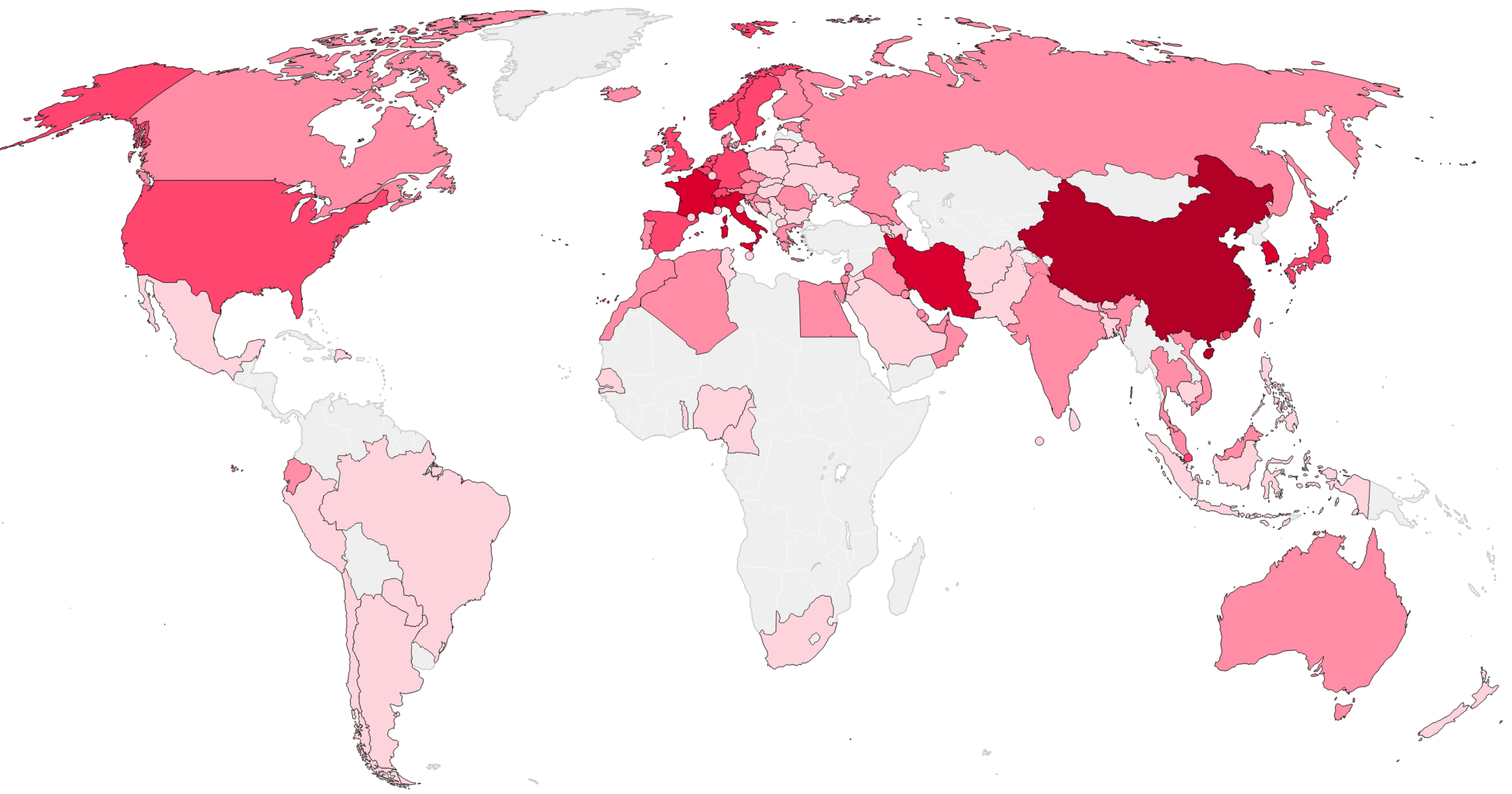| |
Welcome to the first edition of Bloomberg's new daily coronavirus newsletter for the latest on the Covid-19 outbreak and its impact around the world. You're receiving this introductory newsletter because you're an active Bloomberg subscriber and we thought you might be interested in reading this new daily briefing. To keep getting the latest virus news in your inbox after today, sign up here.
Good morning, everyone. Here's the latest top news on the virus:
|
Our take on the latest developments |
This week, countries with early-stage coronavirus clusters are going to start finding out whether they’re Italy, or whether they’re Singapore.
Early on, Singapore seemed like it could succumb to an outbreak because of its close geographic and economic ties to China. But it’s totaled only 150 cases since a first patient emerged in mid-January.
In Italy, there were only 17 identified cases less than three weeks ago. Now, there are more than 7,000, with at least 350 people dead. Movement has been restricted around Milan, Venice and other northern cities. There are concerns about hospitals being strained beyond capacity.
The two countries offer contrasting case studies. Italy showed what can happen when an outbreak goes undetected. Singapore’s decisive measures proved that aggressive testing, tracking and quarantine can halt the virus.
The U.S. isn’t Singapore. A weeks-long failure to test and isolate patients and their contacts means that opportunity has likely passed. There are too many cases emerging without ties to other ones and experts believe the disease is circulating freely in some places.
The question is whether America will look like Italy, or something else.
Two weeks ago, the U.S. Centers for Disease Control and Prevention warned that Americans should be ready to experience disruptions in their daily lives. With markets in panic, and a public-health response that’s seemed behind the ball, that’s looking more likely by the day.
U.S. testing for new cases is expected to rapidly grow this week, and so too will the number of confirmed patients. Those numbers will likely determine the reaction by state and local governments. New York has already urged people who might be vulnerable to commute on off hours, and walk or bike to avoid the subway. The CDC has told people with underlying health conditions to stock up on necessary supplies like prescription medicines.
Fighting epidemics, or stopping them from spreading, has a cost. When we’re ahead of them, we have relatively cheap, non-disruptive tools—like vaccines. When we’re behind them, economy-rattling quarantines, movement restrictions and health-system strain become more likely—not to mention more infections, and more people seriously ill or dead.
The market selloff speaks to a gnawing sense that policy makers are falling further and further behind the virus. This week, the world is going to start finding out just how bad things really are.— Drew Armstrong |
Track the virus |

Photographer: Bloomberg Graphics
Photographer: Bloomberg Graphics
Mapping the Coronavirus Outbreak Around the World
See the latest counts globally as health authorities around the world remain on high alert.
|
What you should read |
 |
The new coronavirus causes little more than a cough if it stays in the nose and throat. Danger starts when it reaches the lungs.
|
 |
A virus-stricken ship, with more than 3,500 on board, prepares to dock in California. Saudi Arabia unleashes all-out war on the price of oil. Wall Street analysts worry about signs of distress in the funding markets.
|
 |
Asia’s super rich suddenly have lots of time on their hands.
|
 |
China’s efforts to contain the deadly coronavirus will be tested as people return to their workplaces and some infected people enter from elsewhere.
|
 |
Restrictions on 17 million people are the most draconian in the West, but they’re far less strict than China’s. The onus is on citizens to comply.
|
Know someone else who would like this newsletter?
|

No comments:
Post a Comment